Welcome to the world of decorative external window shutters! If you’re looking to add a touch of elegance to your home, you’ve come to the right place. As an SEO expert and home improvement enthusiast, I’ve had my fair share of experiences with window shutters, both in my own home and through countless projects over the years. Let’s dive into everything you need to know about these charming additions that can elevate your home’s aesthetic.
What Are Decorative External Window Shutters?
Decorative external window shutters are not just functional but also serve as an essential design element for your home. They come in various styles, colors, and materials that can complement any architectural design. While their primary purpose might have been practical—providing privacy and protection—they have evolved into a stunning decorative feature that can enhance curb appeal.
The Many Types of Decorative External Window Shutters
Understanding the different types of decorative shutters is key to selecting the right style for your home. Here are some popular options:
1. Plantations Shutters
Plantation shutters are characterized by wide horizontal slats that can be adjusted for light control and privacy. They’re typically made of wood or composite materials, offering both durability and style.
Pros:
- Excellent light control
- Versatile style options
- Energy-efficient
Cons:
- Can be more expensive
- May require professional installation
2. Board and Batten Shutters
This traditional style features vertical boards joined by horizontal battens. These shutters add a rustic charm to any home and work well with country or farmhouse styles.
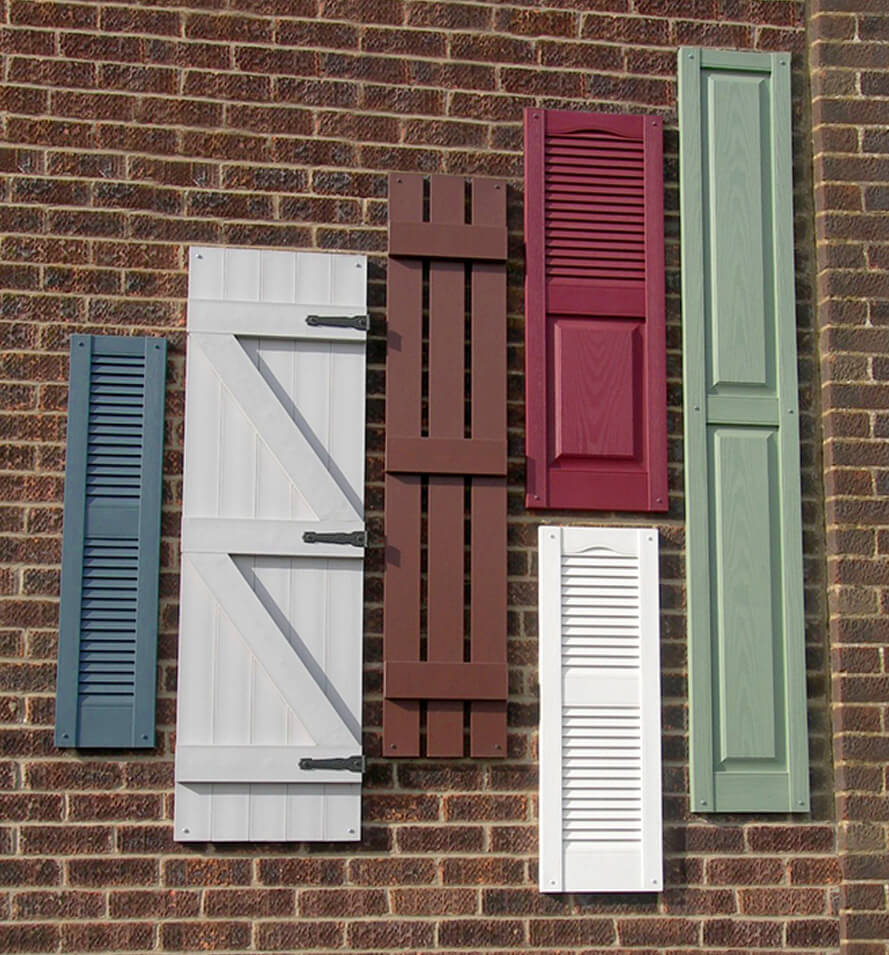
Pros:
- Classic appeal
- Sturdy and long-lasting
- Easy to customize
Cons:
- Limited light control
- Can appear bulky on smaller windows
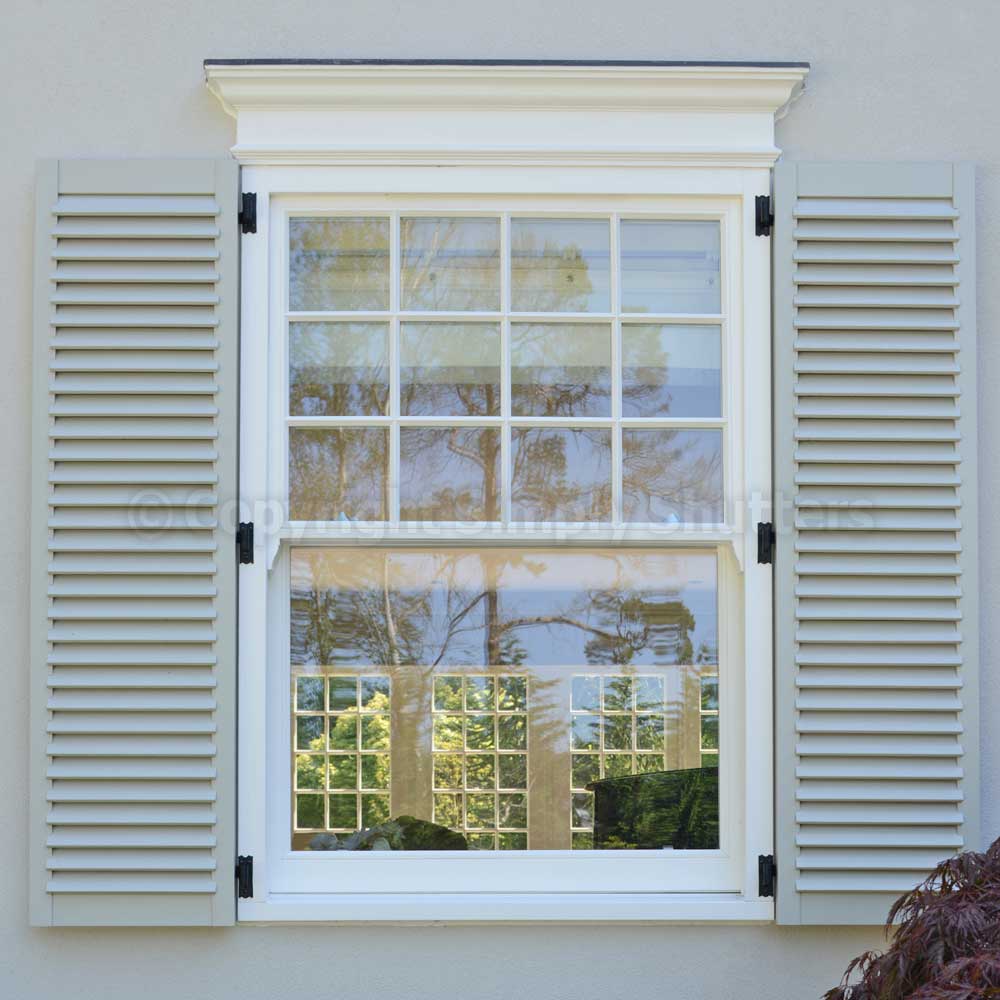
3. Louvered Shutters
Louvered shutters have angled slats that allow air and light to flow through while providing privacy. They are ideal for warmer climates.
Pros:
- Great ventilation
- Stylish and contemporary
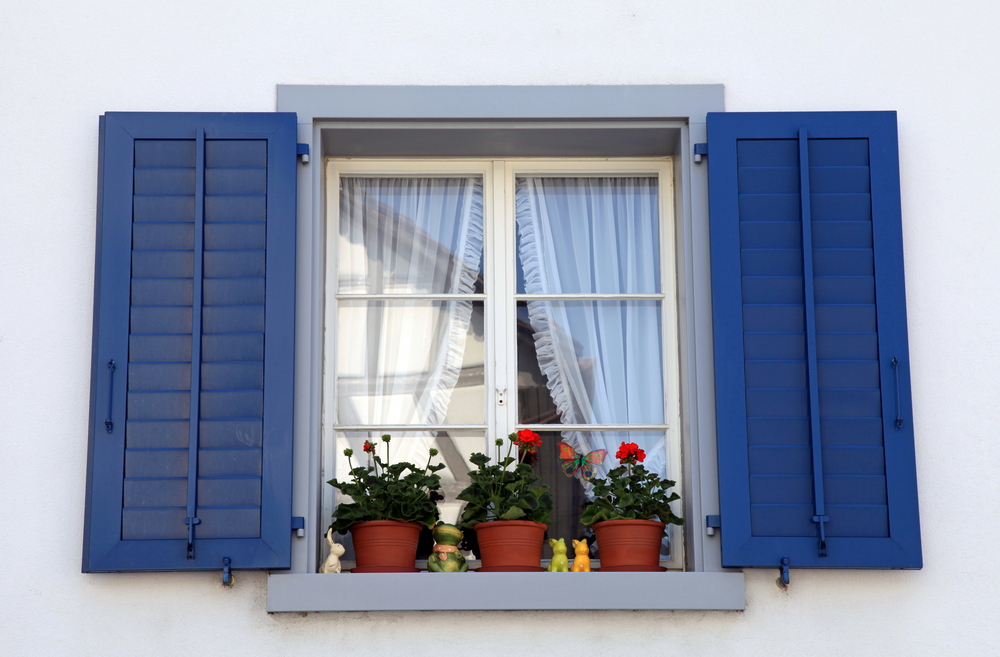
Cons:
- May not provide complete privacy
- Can require more maintenance
4. Raised Panel Shutters
These feature a solid panel design for a more formal look, often used in colonial or traditional styles. They’re great for adding depth and dimension to your windows.
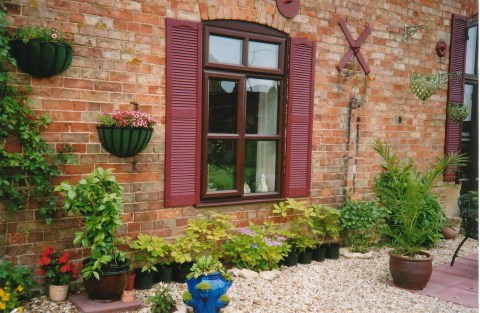
Pros:
- Elegant and timeless
- Provides excellent durability
Cons:
- Heavier and may require additional support
- Cost can be higher depending on materials

Choosing the Right Material for Your Shutters
The material of your decorative window shutters significantly impacts their look, durability, and maintenance requirements. Here are the most common materials used:
1. Wood Shutters
Wood offers a classic look and can be painted or stained to match your home. However, they may require more maintenance to prevent warping or rotting.

2. Vinyl Shutters
Vinyl is a low-maintenance option that is resistant to moisture and pests. It’s available in various colors but lacks the classic appeal of wood.
3. Composite Shutters
Composite materials blend wood and synthetic materials to provide a durable and attractive option. They mimic the look of wood but are more resistant to the elements.
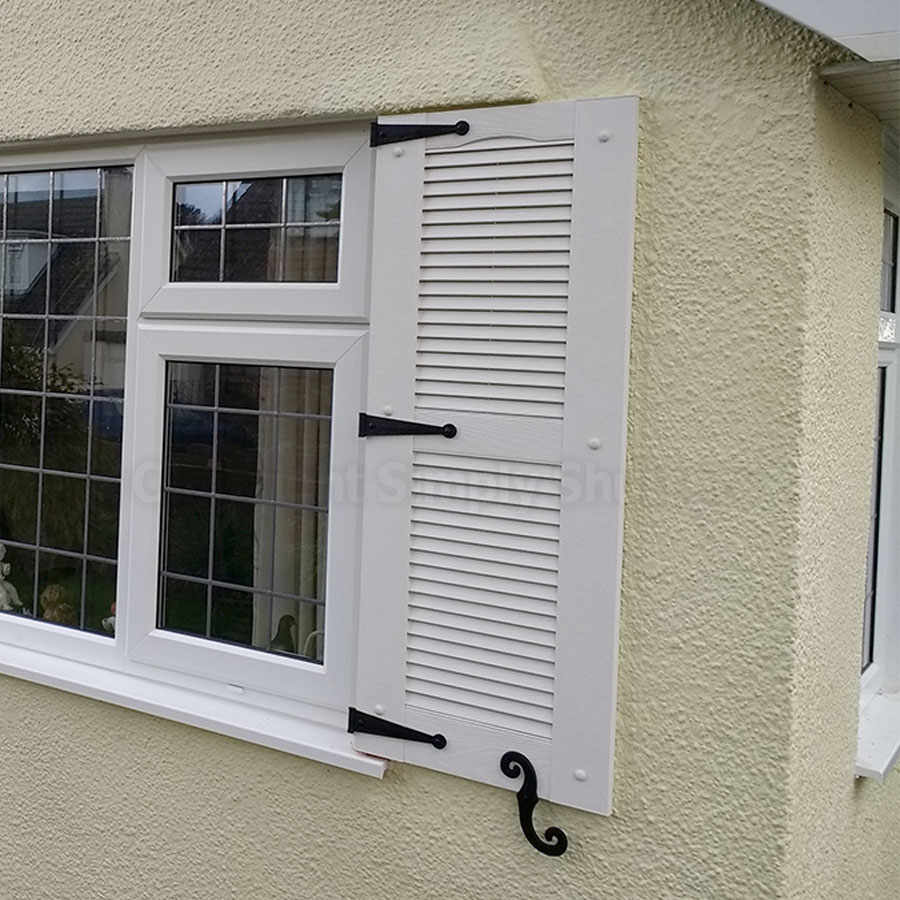
4. Aluminum Shutters
These are perfect for modern homes and offer exceptional durability. While they are not as traditional, they can provide a sleek, contemporary look.
Comparison Table of Shutter Materials
| Material | Durability | Maintenance | Cost |
|---|---|---|---|
| Wood | Moderate | High | Medium to High |
| Vinyl | High | Low | Low to Medium |
| Composite | High | Low to Medium | Medium |
| Aluminum | Very High | Very Low | Medium to High |
Benefits of Decorative External Window Shutters
Decorative shutters do more than beautify your home. Here are some of the benefits they offer:
1. Aesthetic Appeal
Shutters can enhance your home’s overall appearance, adding character and warmth. They come in various colors and finishes to suit your style.
2. Improved Energy Efficiency
Properly installed shutters can help regulate indoor temperatures by blocking out heat in the summer and retaining warmth in the winter, leading to lower energy bills.
3. Protection from Weather
Shutters provide an extra layer of protection against harsh weather conditions, shielding your windows from wind, rain, and debris.
4. Increased Privacy
By adding shutters, you can enjoy an added sense of privacy in your home, especially in densely populated areas.
5. Boosted Home Value
Summing up the above benefits, decorative shutters can increase your home’s value, especially if they complement the architectural style and are made of high-quality materials.
How to Choose the Right Decorative Shutters for Your Home
Choosing the right shutters can be overwhelming given the variety available. Here are some tips to help you make the right decision:
1. Consider Your Home’s Style
Think about the architectural style of your home. For example, traditional homes might look best with raised panel shutters, while modern designs can benefit from sleek aluminum options.
2. Match Colors and Finishes
Choose colors that complement your home’s exterior. Neutral colors can add elegance, while brighter shades can make a bold statement.
3. Measure Your Windows Correctly
Accurate measurements are crucial. Measure the width and height of your windows and consider whether you want the shutters to be decorative or functional.
4. Functionality vs. Aesthetics
Decide whether you want your shutters to serve a practical purpose (like light control and privacy) or if they are purely for decorative purposes.
Installation Guide for Decorative External Window Shutters
Installing window shutters can be a DIY project or a job for professionals. Here’s a simple guide if you choose to go the DIY route:
Tools and Materials Needed
- Measuring tape
- Level
- Drill and drill bits
- Screwdriver
- Paint or stain (if applicable)
- Shutter hardware
Steps for Installation
- Measure your windows and select the appropriate shutter size.
- Prepare the shutters by sanding and painting or staining if necessary.
- Align the shutters with the window frame to ensure proper fit.
- Secure the shutters in place using screws, making sure they are level.
- Attach the necessary hardware for operation (if applicable).
Professional Installation
If you’re not comfortable with DIY projects, hiring a professional can save time and ensure proper installation. Look for licensed contractors with experience in window shutter installation.
Maintenance Tips for Your Decorative Shutters
To keep your shutters looking great, it’s essential to perform regular maintenance. Here are some tips:
1. Regular Cleaning
Dust your shutters regularly with a microfiber cloth. For deeper cleaning, use soapy water and a gentle scrub brush.
2. Inspect for Damage
Check for any signs of damage, such as warping or peeling paint, particularly on wooden shutters, and address any issues promptly.
3. Repaint or Restain When Needed
Depending on your shutter material, you may need to repaint or restain every few years to keep them looking fresh.
Conclusion
Decorative external window shutters can transform your home’s exterior, offering both beauty and functionality. With various styles, materials, and benefits, choosing the perfect shutters for your home can enhance your living space and potentially increase its value. Whether you decide to tackle the installation yourself or hire a professional, these charming additions will surely make your home stand out.
Frequently Asked Questions (FAQs)
1. Are decorative shutters functional?
Yes, many decorative shutters are also functional, providing light control, privacy, and added insulation for your home.
2. How do I choose the right style of shutters?
Consider your home’s architectural style, color scheme, and whether you want the shutters to be purely decorative or functional.
3. What is the best material for exterior shutters?
It depends on your preferences and climate. Wood offers a classic look, while vinyl or composite materials are low-maintenance and durable.
4. Can I install shutters myself?
Yes, if you have basic DIY skills and tools, you can install shutters yourself. However, hiring a professional can ensure a perfect fit and finish.
5. How often should I clean my shutters?
It’s recommended to dust your shutters regularly and perform a deep clean every few months to keep them looking their best.